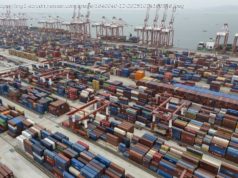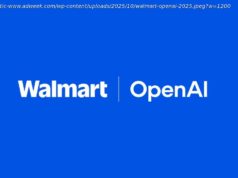President Trump’s plan to cut corporate taxes will only add more fuel to the rally in the shares of automation companies on Wall Street, according to fund managers.
President Trump’s plan to cut corporate taxes will only add more fuel to the rally in the shares of automation companies on Wall Street, according to fund managers. Automation companies have sustained a rally that has gone on for nearly a year, and it is expected to continue as corporations look for ways to maintain margins and productivity as wages rise and unemployment is low. Many fund holdings are up over 90 percent this year. “Scarcity of capital is the thing that keeps companies from spending money when it makes sense to do so. Investing in automation would be something that pays for itself quickly,” said Matt Litfin, a portfolio manager of the $4.8-billion Columbia Acorn fund. Cognex to benefit the most from tax cuts There are a number of automation companies expected to benefit from the tax cuts, including Natick, Massachusetts-based Cognex Corporation. The company already has offices in 20 countries. Cognex makes machine vision systems that are used to quickly sort and fill orders in e-commerce warehouses. The company began exploring commercial applications for machine vision in the early 1980s. By the 1990s, the company was growing because of the demand for machine vision tools to help automate semiconductor and electronics manufacturing. And while semiconductors are an important part of its revenue, Cognex has branched out. The biggest part of their revenue now comes from applications in areas that include pharmaceutical, automotive, healthcare, packaging, aerospace and consumer products manufacturing. Acquisitions have played a major role in the company’s growth over the years, allowing Cognex to enter new markets. This is a new product in Cognex Machine Vision DataMan was an optical character recognition (OCR) system that could read, verify, and assure the quality of letters, numbers, and symbols printed on machine parts, products, and components. FARO to benefit from tax cuts FARO’s technology and manufacturing facility is located in Exton, Pennsylvania, containing research and development, manufacturing and service operations for the FARO Laser Tracker and FARO Cobalt Array 3D Imager product lines. FARO also has offices in countries around the world. On September 17, the company announced the availability of its most recent product in the FARO® Visual InspectTM product family. This innovative platform enables large, complex 3D CAD (computer-aided design) data to be transferred to an iPad and then used for mobile visualization and comparison to real-world conditions. Using a hand held VIUscan 3D laser scanner. The device uses a laser scanner to create a 3D model. It also uses a camera to accurately texture map the object. The big advance in 3D imagine being moved from a traditional desktop PC to a mobile device will enable almost instant « in hand, on demand » solutions It does make sense to fund managers that companies developing and manufacturing products that increase productivity and reduce labor costs will benefit from the tax cuts on corporations. Eric Marshall, a portfolio manager of the $743-million Hodges Small Cap fund says, “Even eight years after the financial crisis, companies are still very focused on their bottom lines and maintaining efficiency and productivity as much as possible. » Fund Managers from Columbia Management Investment Advisers, Hodges Capital, and Hood Capital are saying they expect many companies will use part of the tax savings to invest in high-cost machines that will allow them to reduce labor costs, according to Reuters. Automation companies have sustained a rally that has gone on for nearly a year, and it is expected to continue as corporations look for ways to maintain margins and productivity as wages rise and unemployment is low. Many fund holdings are up over 90 percent this year.“Scarcity of capital is the thing that keeps companies from spending money when it makes sense to do so. Investing in automation would be something that pays for itself quickly,” said Matt Litfin, a portfolio manager of the $4.8-billion Columbia Acorn fund. There are a number of automation companies expected to benefit from the tax cuts, including Natick, Massachusetts-based Cognex Corporation. The company already has offices in 20 countries. Cognex makes machine vision systems that are used to quickly sort and fill orders in e-commerce warehouses. The company began exploring commercial applications for machine vision in the early 1980s. By the 1990s, the company was growing because of the demand for machine vision tools to help automate semiconductor and electronics manufacturing. And while semiconductors are an important part of its revenue, Cognex has branched out. The biggest part of their revenue now comes from applications in areas that include pharmaceutical, automotive, healthcare, packaging, aerospace and consumer products manufacturing. Acquisitions have played a major role in the company’s growth over the years, allowing Cognex to enter new markets. Cognex was founded in 1981 by Dr. Robert J. Shillman, a lecturer in human visual perception at the Massachusetts Institute of Technology, and two MIT graduate students, Bill Silver and Marilyn Matz. Cognex stands for Cognition Experts. Their first vision system was introduced in 1982 and called DataMan. DataMan was an optical character recognition (OCR) system that could read, verify, and assure the quality of letters, numbers, and symbols printed on machine parts, products, and components. Lake Mary, Florida-based FARO designs, develops, manufactures, markets and supports software driven, three-dimensional (3D) measurement, imaging, and realization systems. It sells its products through direct sales in a range of manufacturing, industrial, architecture, surveying, building construction and law enforcement applications. FARO’s technology and manufacturing facility is located in Exton, Pennsylvania, containing research and development, manufacturing and service operations for the FARO Laser Tracker and FARO Cobalt Array 3D Imager product lines. FARO also has offices in countries around the world. On September 17, the company announced the availability of its most recent product in the FARO® Visual InspectTM product family. This innovative platform enables large, complex 3D CAD (computer-aided design) data to be transferred to an iPad and then used for mobile visualization and comparison to real-world conditions. The big advance in 3D imagine being moved from a traditional desktop PC to a mobile device will enable almost instant « in hand, on demand » solutions says the company.






